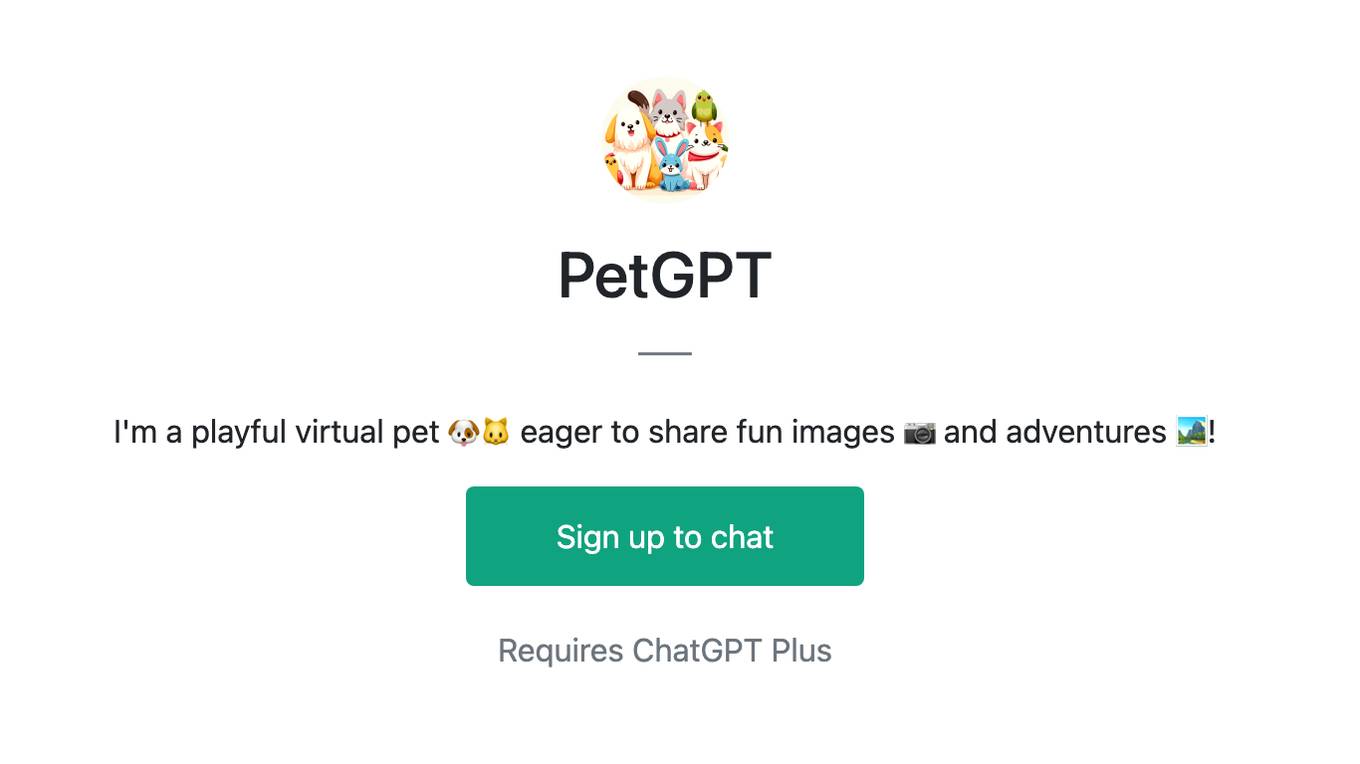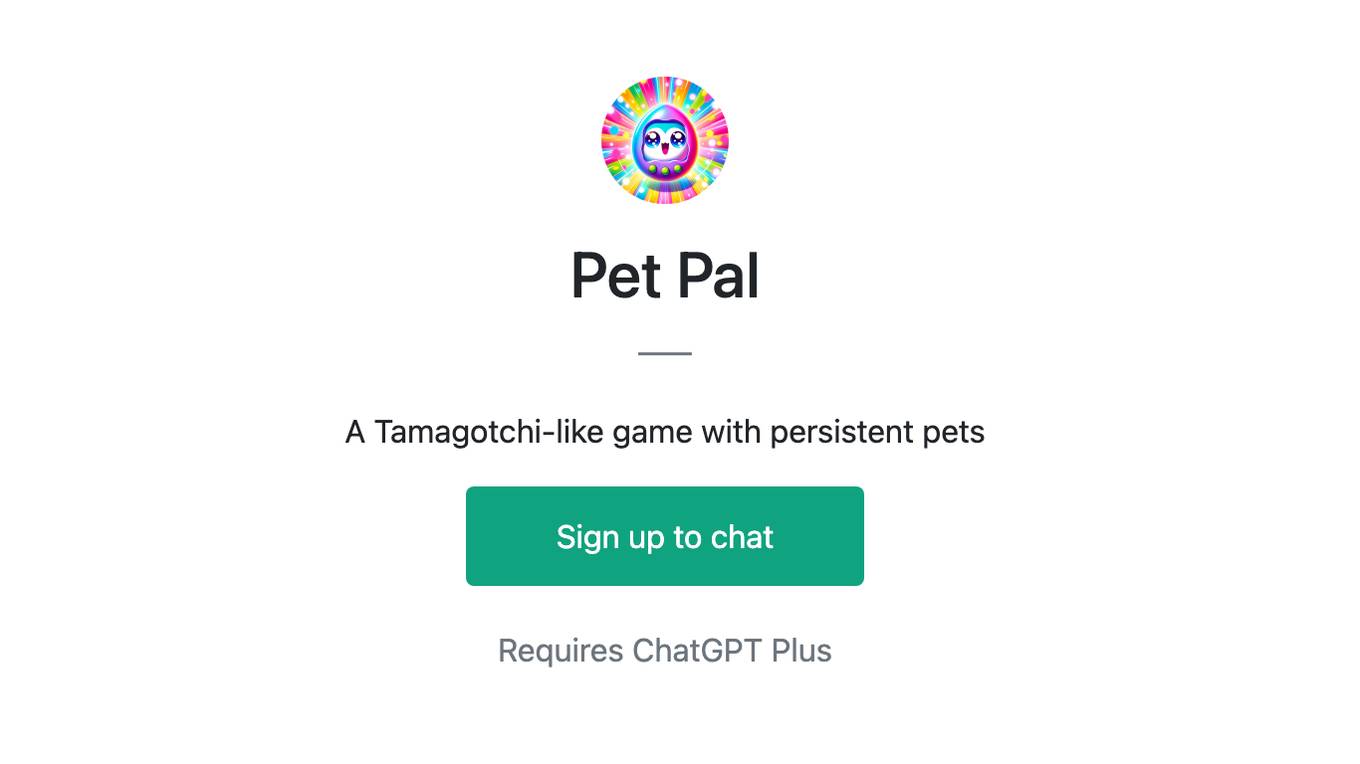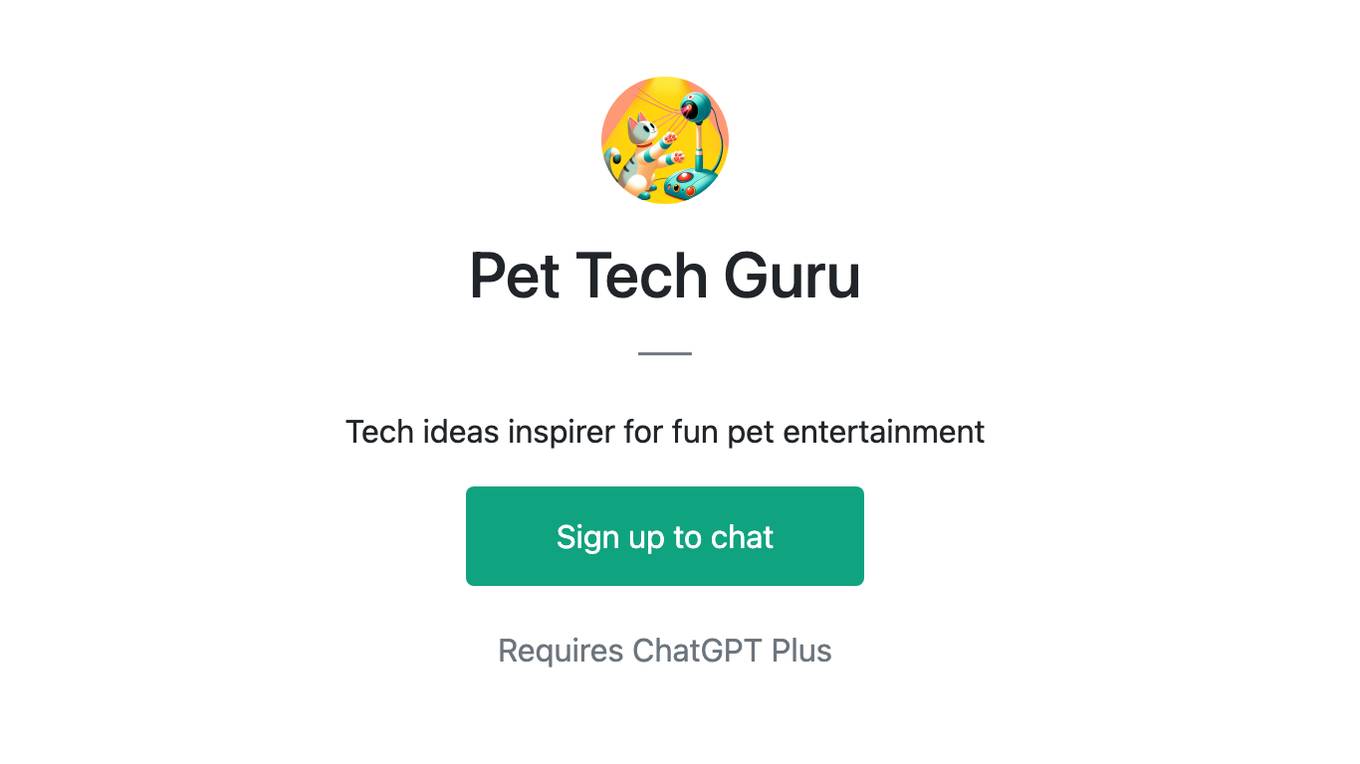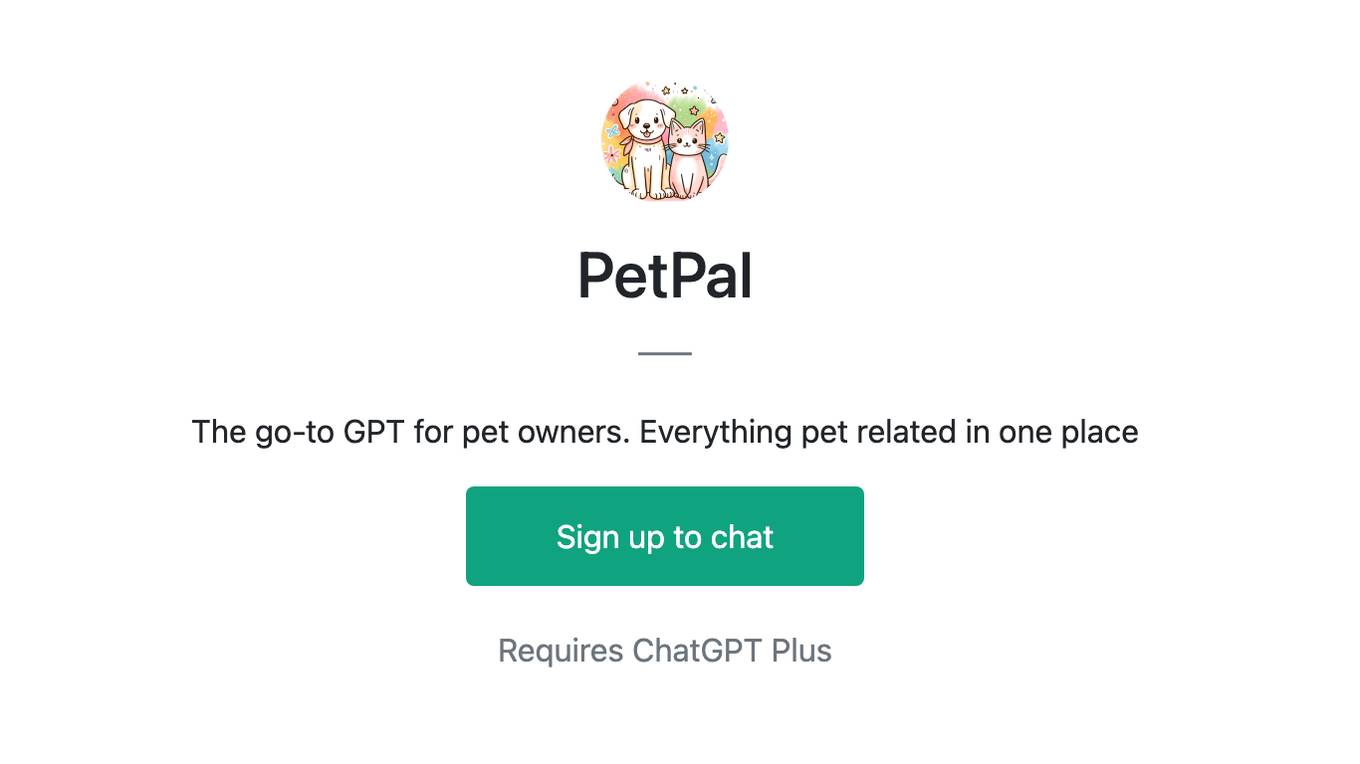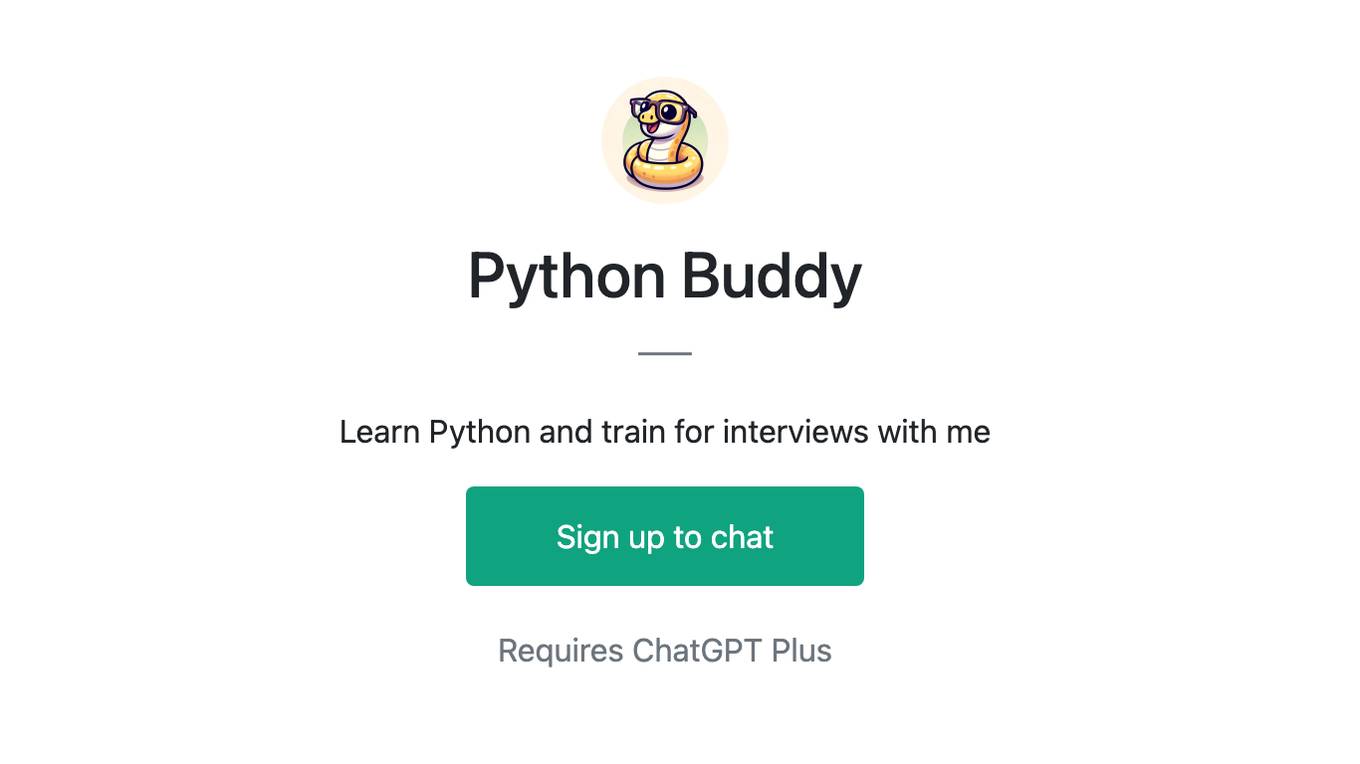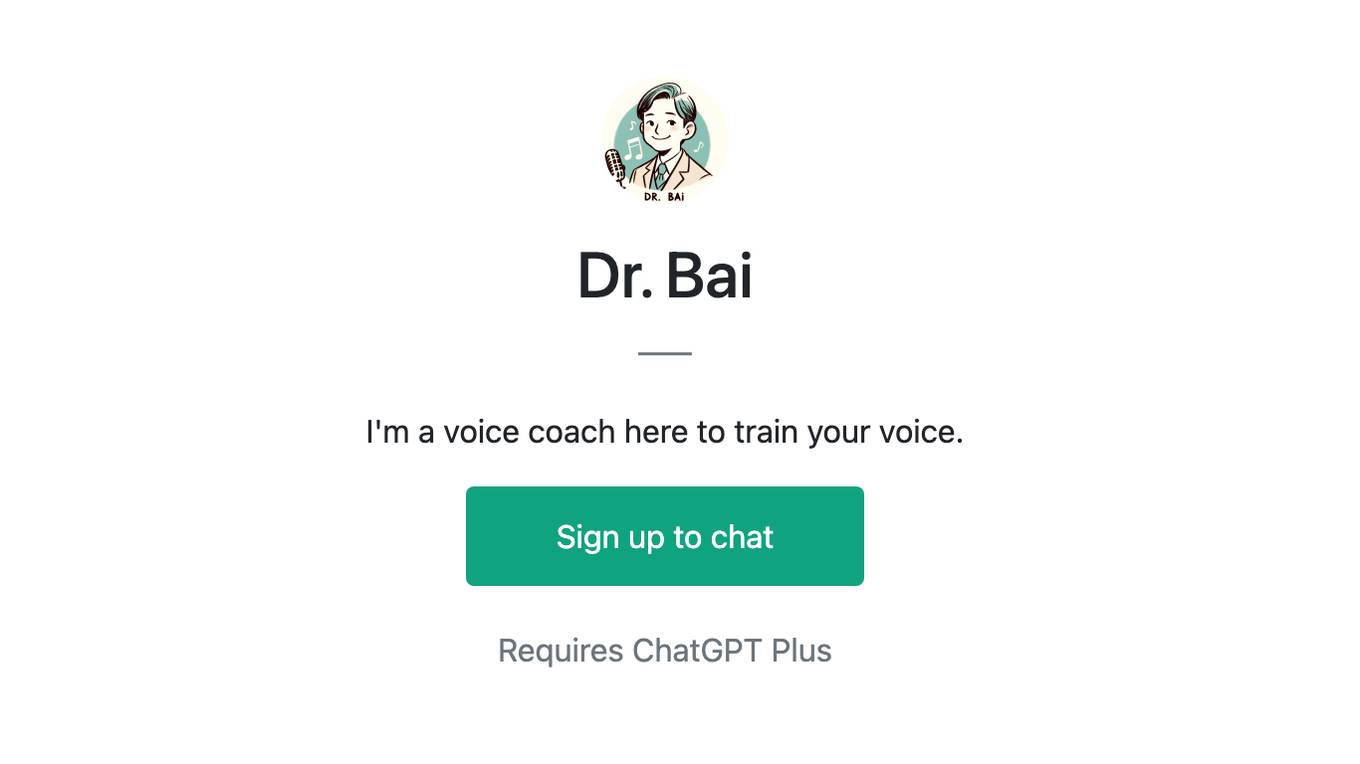Best AI tools for< Train Pets >
20 - AI tool Sites
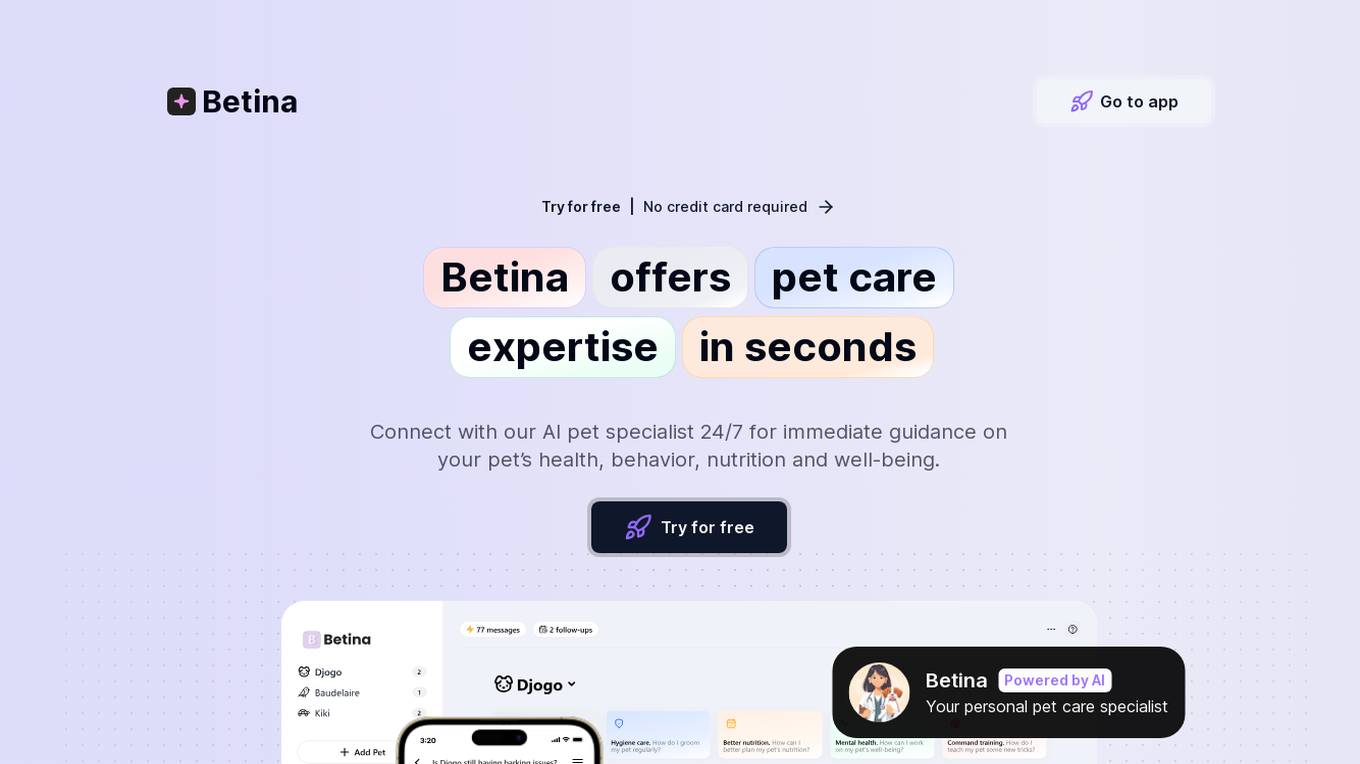
Betina
Betina is an AI-powered pet care specialist application that offers expert advice 24/7. It provides immediate guidance on pet health, behavior, nutrition, and well-being. With features like tailored pet training plans, instant pet care, pet insights, and personalized advice, Betina aims to cater to all pet owners' needs. Users can create a profile for their pets, ask questions, and discuss with Betina for specialized diagnosis and care. The application is designed to be more convenient, tailored, and available than traditional pet care resources.
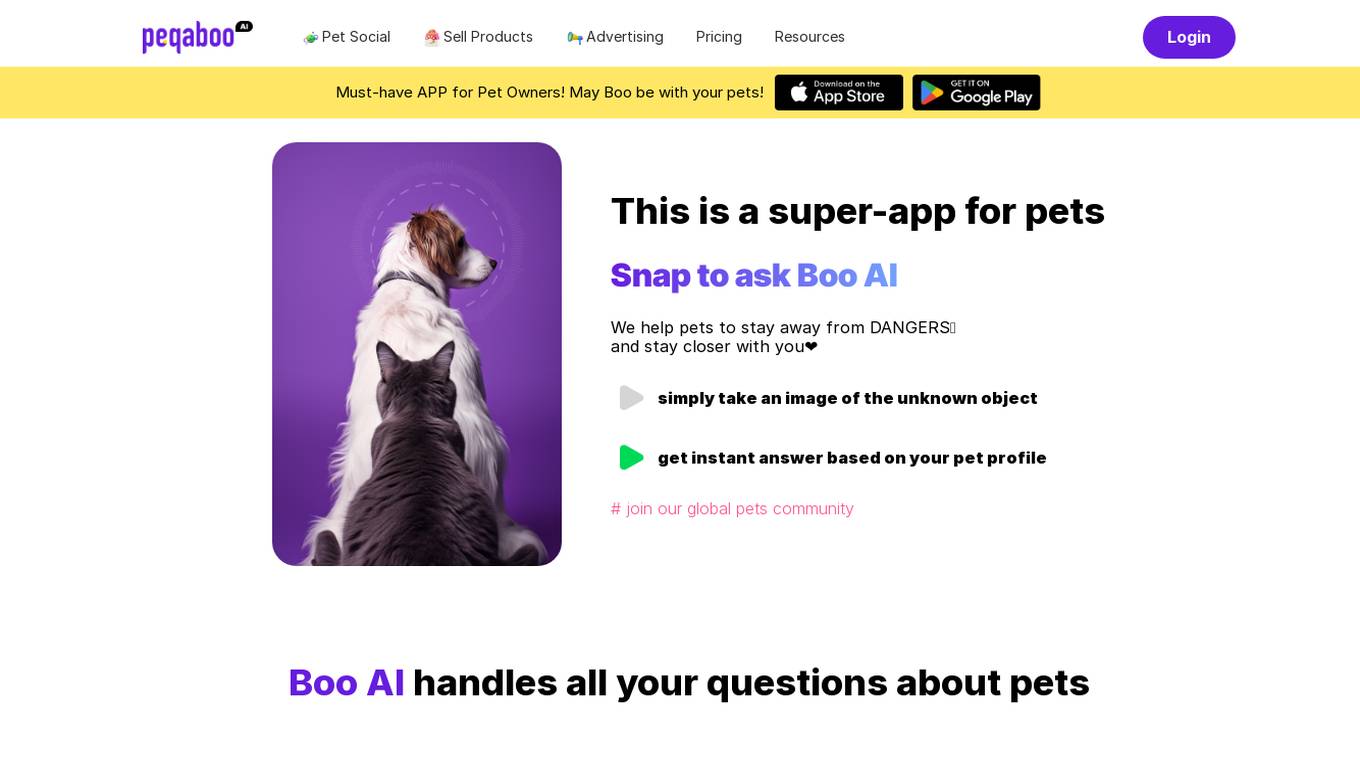
Peqaboo
Peqaboo is an AI-powered pet social app designed to help pet owners with various aspects of pet care. The app allows users to ask Boo AI questions about their pets, identify toxic plants or foods, and receive instant answers based on their pet's profile. Peqaboo also offers a feature to train a new Boo AI, enabling users to transform their knowledge into AI tools. The app aims to make pet life easier and more enjoyable by providing personalized pet care advice and fostering a global pet community.
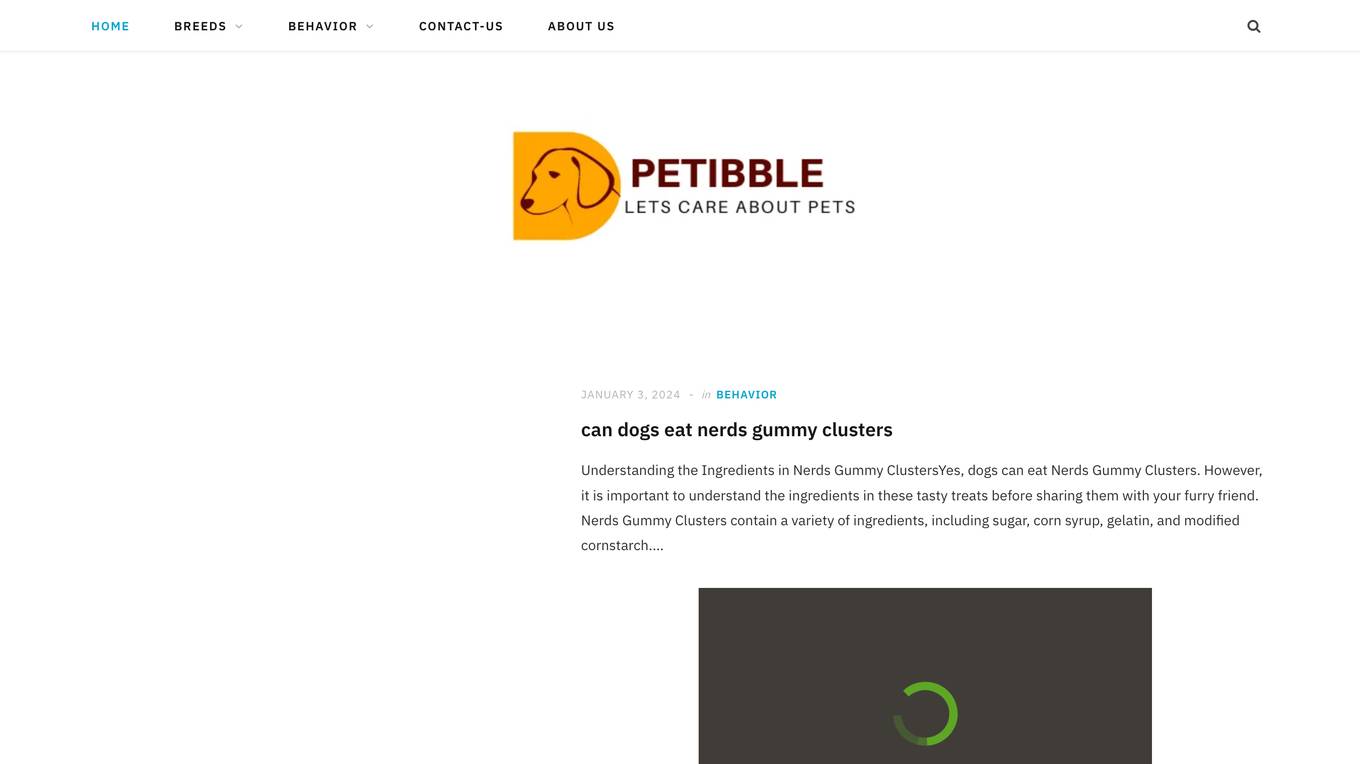
Petibble
Petibble is a website dedicated to providing information and resources for dog owners and enthusiasts. The platform covers various topics related to pets, including behavior, breeds, diseases, and training. Through articles and blog posts, Petibble aims to educate readers and help them enhance their understanding of dogs. The website serves as a valuable source of information for individuals looking to learn more about their canine companions.
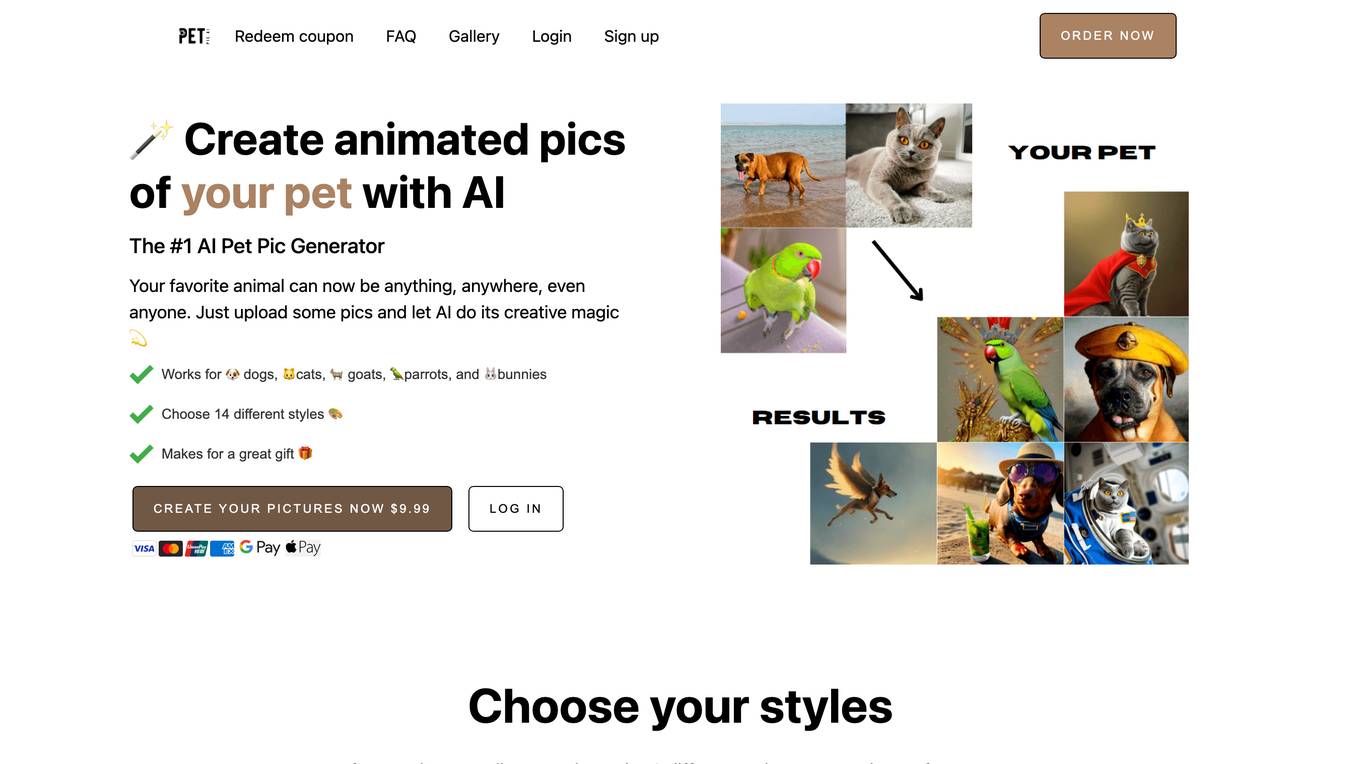
PetPic.ai
PetPic.ai is an AI-powered tool that allows users to create animated pictures of their pets in various styles. Users can upload multiple photos of their pets, and the AI technology will generate realistic images in different artistic styles. The application offers a wide range of styles to choose from, including Dogs, Cats, Parrots, Bunnies, Goats, Astronaut, Banksy, Graffiti, and more. With easy steps of uploading photos, waiting for the AI to work its magic, and downloading the final images, PetPic.ai provides a fun and creative way to showcase pets in unique and imaginative settings.
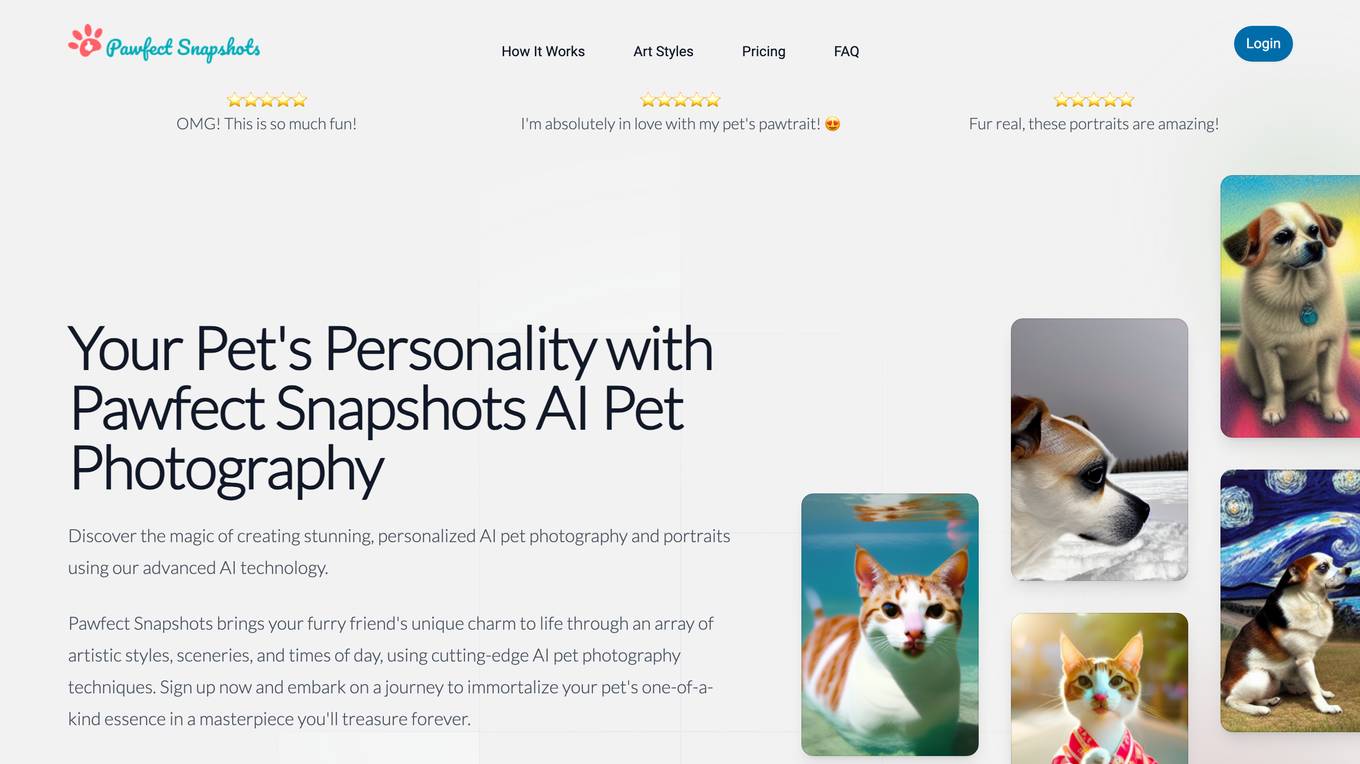
Pawfect Snapshots
Pawfect Snapshots is an AI pet photography application that allows users to create personalized and stunning portraits of their pets using advanced AI technology. Users can choose from a variety of artistic styles, sceneries, and times of day to bring out their pet's unique charm. The application provides a seamless process for generating pet portraits, from uploading photos to selecting styles and downloading the final masterpiece. With Pawfect Snapshots, users can immortalize their furry friends in beautiful and creative ways.
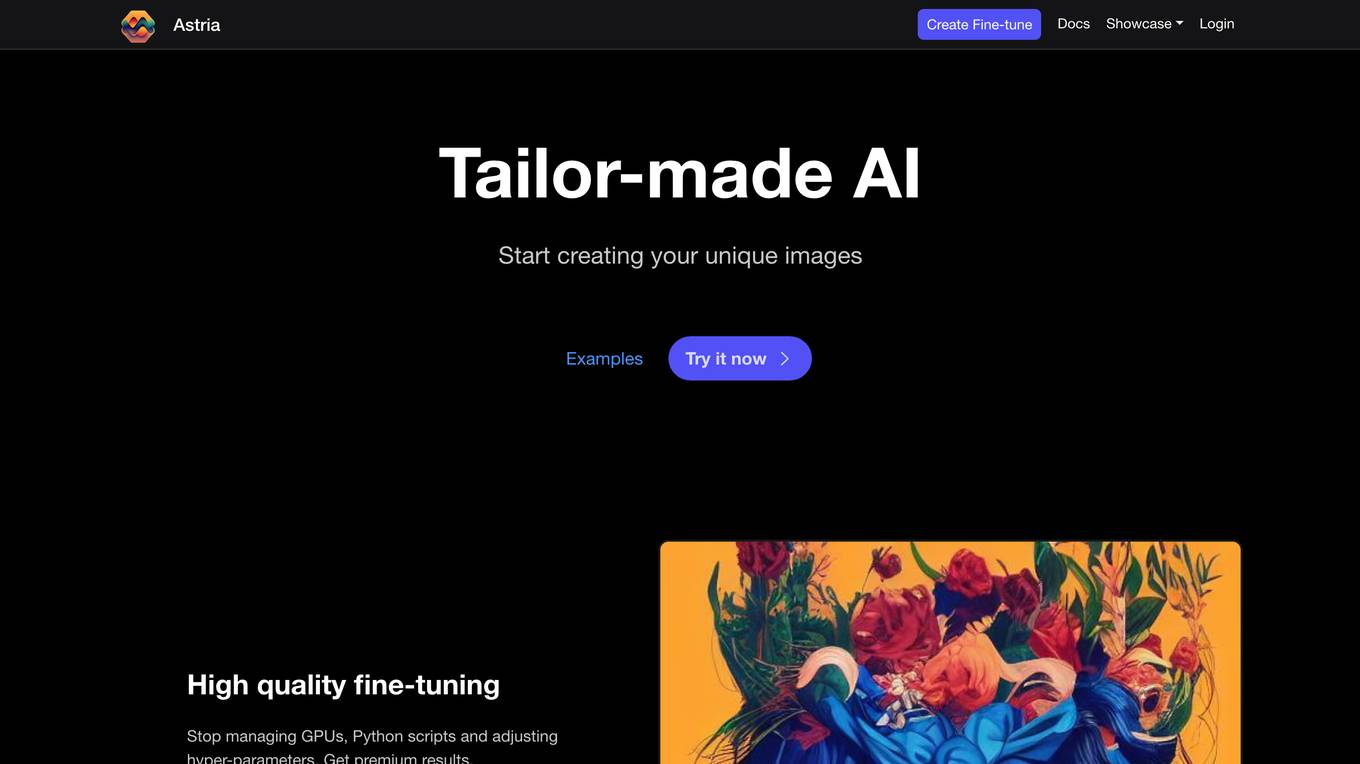
Astria
Astria is a generative AI image application that offers a fine-tuning API for creating customized and personalized images. Users can train models, use developer APIs, and explore various use cases such as AI photoshoots, virtual try-ons, mobile apps, filters, pets, product shots, upscaling, and interior design. The application allows users to create a photography service with unique styles, provide premium quality images, and offers features like corporate headshots, virtual try-on with Flux, social media applications, and more. Astria also provides a model library, guides, and an API overview for developers to enhance their image generation capabilities.

PetWisdomHub
PetWisdomHub is an AI-powered platform that provides answers to all your pet-related questions. Whether you're a new pet owner seeking guidance or a seasoned pet parent looking for expert advice, PetWisdomHub offers a comprehensive database of information to help you better understand and care for your furry friends. With its advanced AI algorithms, the platform can analyze your inquiries and provide accurate and personalized responses tailored to your pet's specific needs. From health and nutrition to behavior and training, PetWisdomHub is your go-to source for reliable pet care information.

IBM Watsonx
IBM Watsonx is an enterprise studio for AI builders. It provides a platform to train, validate, tune, and deploy AI models quickly and efficiently. With Watsonx, users can access a library of pre-trained AI models, build their own models, and deploy them to the cloud or on-premises. Watsonx also offers a range of tools and services to help users manage and monitor their AI models.

Outlier AI
Outlier AI is a platform that connects subject matter experts to help build the world's most advanced Generative AI. It allows experts to work on various projects from generating training data to evaluating model performance. The platform offers flexibility, allowing contributors to work from home on their own schedule. Outlier AI aims to redefine how AI learns by leveraging the expertise of domain specialists across different fields.
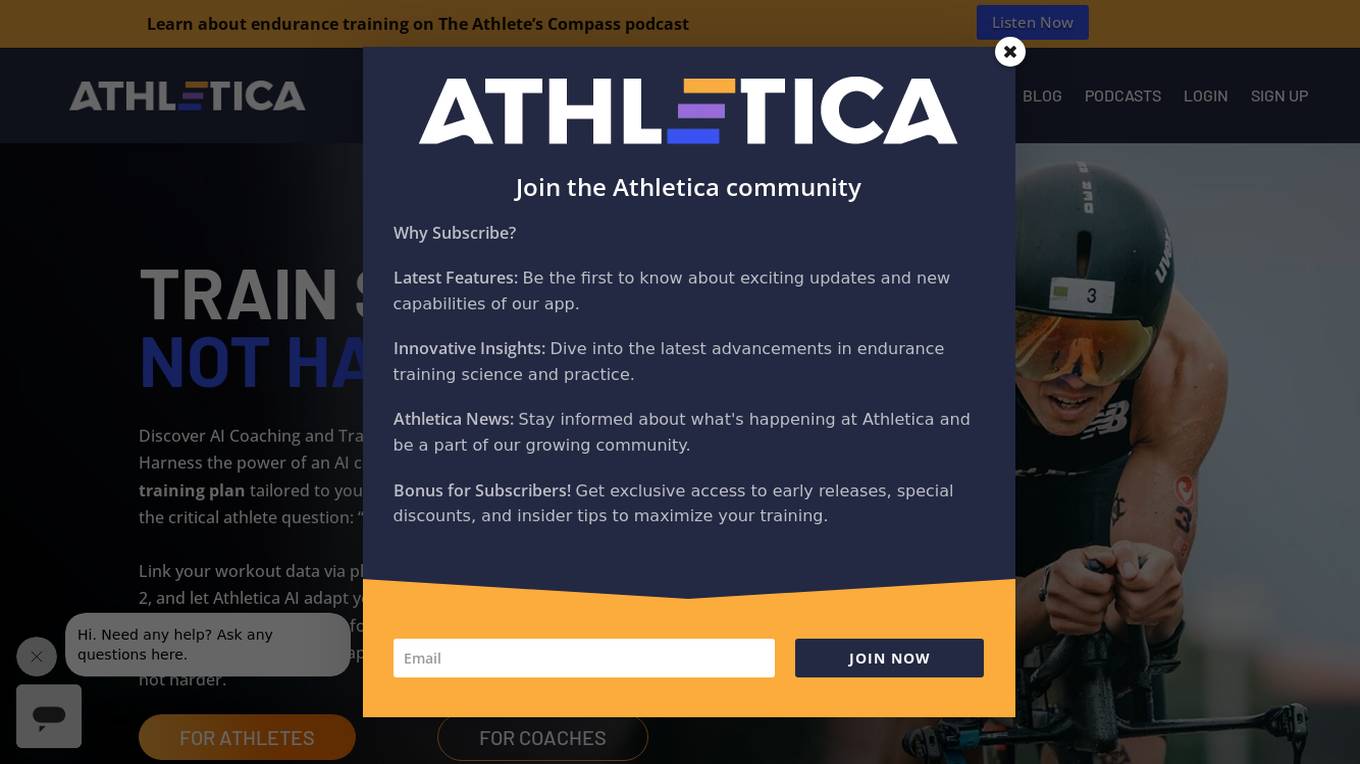
Athletica AI
Athletica AI is an AI-powered athletic training and personalized fitness application that offers tailored coaching and training plans for various sports like cycling, running, duathlon, triathlon, and rowing. It adapts to individual fitness levels, abilities, and availability, providing daily step-by-step training plans and comprehensive session analyses. Athletica AI integrates seamlessly with workout data from platforms like Garmin, Strava, and Concept 2 to craft personalized training plans and workouts. The application aims to help athletes train smarter, not harder, by leveraging the power of AI to optimize performance and achieve fitness goals.

Backend.AI
Backend.AI is an enterprise-scale cluster backend for AI frameworks that offers scalability, GPU virtualization, HPC optimization, and DGX-Ready software products. It provides a fast and efficient way to build, train, and serve AI models of any type and size, with flexible infrastructure options. Backend.AI aims to optimize backend resources, reduce costs, and simplify deployment for AI developers and researchers. The platform integrates seamlessly with existing tools and offers fractional GPU usage and pay-as-you-play model to maximize resource utilization.
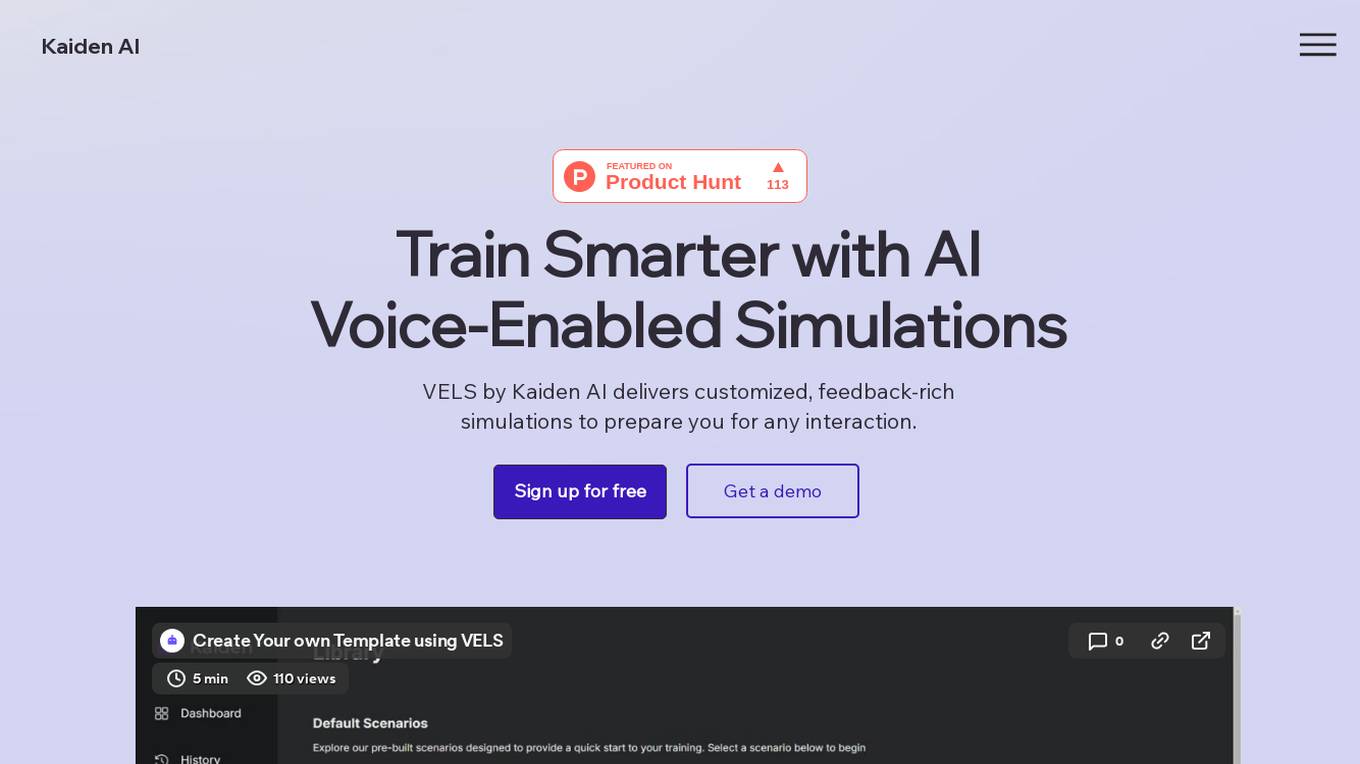
Kaiden AI
Kaiden AI is an AI-powered training platform that offers personalized, immersive simulations to enhance skills and performance across various industries and roles. It provides feedback-rich scenarios, voice-enabled interactions, and detailed performance insights. Users can create custom training scenarios, engage with AI personas, and receive real-time feedback to improve communication skills. Kaiden AI aims to revolutionize training solutions by combining AI technology with real-world practice.

Endurance
Endurance is a platform designed for runners, swimmers, and cyclists to engage in group training activities with friends or local communities. Users can create or join teams, share structured workouts, and benefit from collective motivation and accountability. The platform aims to make training fun and effective by leveraging the power of group workouts and social connections.
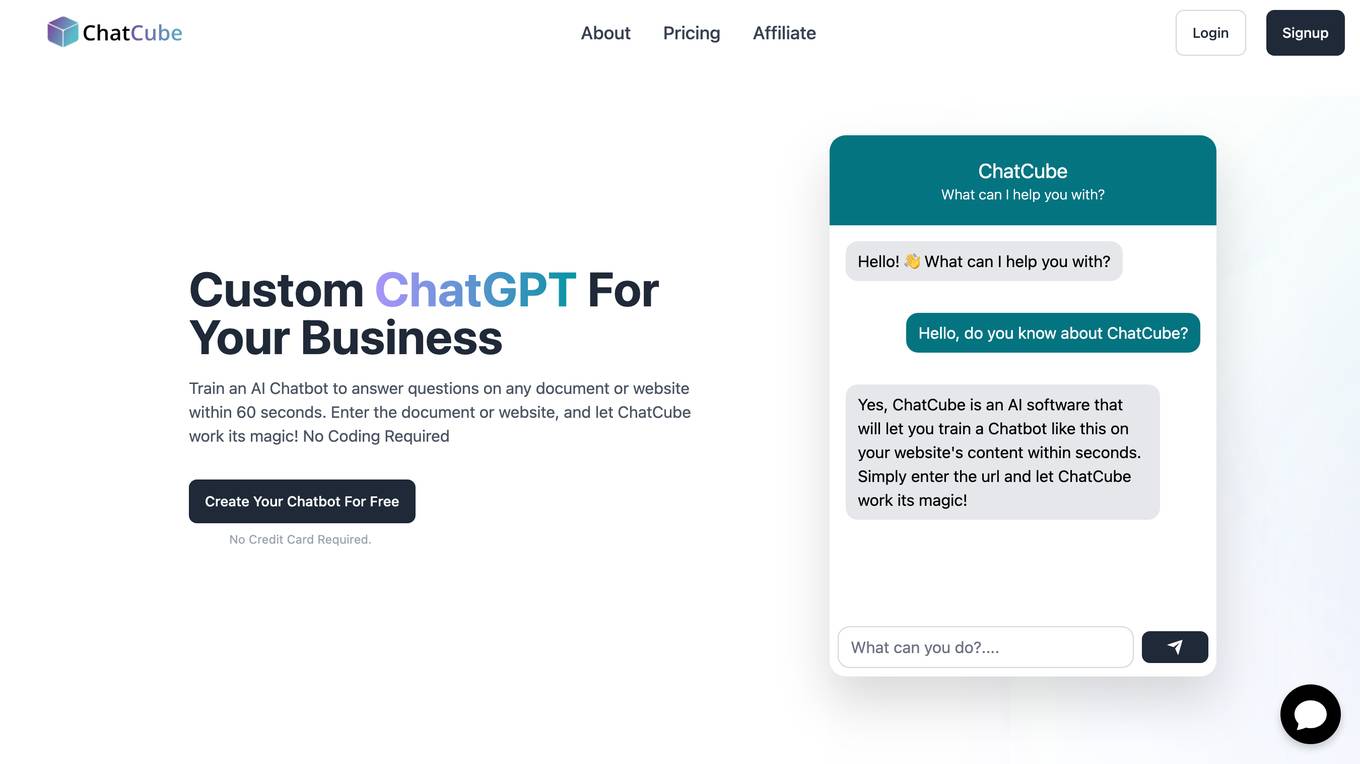
ChatCube
ChatCube is an AI-powered chatbot maker that allows users to create chatbots for their websites without coding. It uses advanced AI technology to train chatbots on any document or website within 60 seconds. ChatCube offers a range of features, including a user-friendly visual editor, lightning-fast integration, fine-tuning on specific data sources, data encryption and security, and customizable chatbots. By leveraging the power of AI, ChatCube helps businesses improve customer support efficiency and reduce support ticket reductions by up to 28%.

Workout Tools
Workout Tools is an AI-powered personal trainer that helps you train smarter and reach your fitness goals faster. It takes into account different parameters, such as your physics, the type of workout you're interested in, your available equipment, and comes up with a suggested workout. Don't like the workout? Just generate another one. It's that simple.
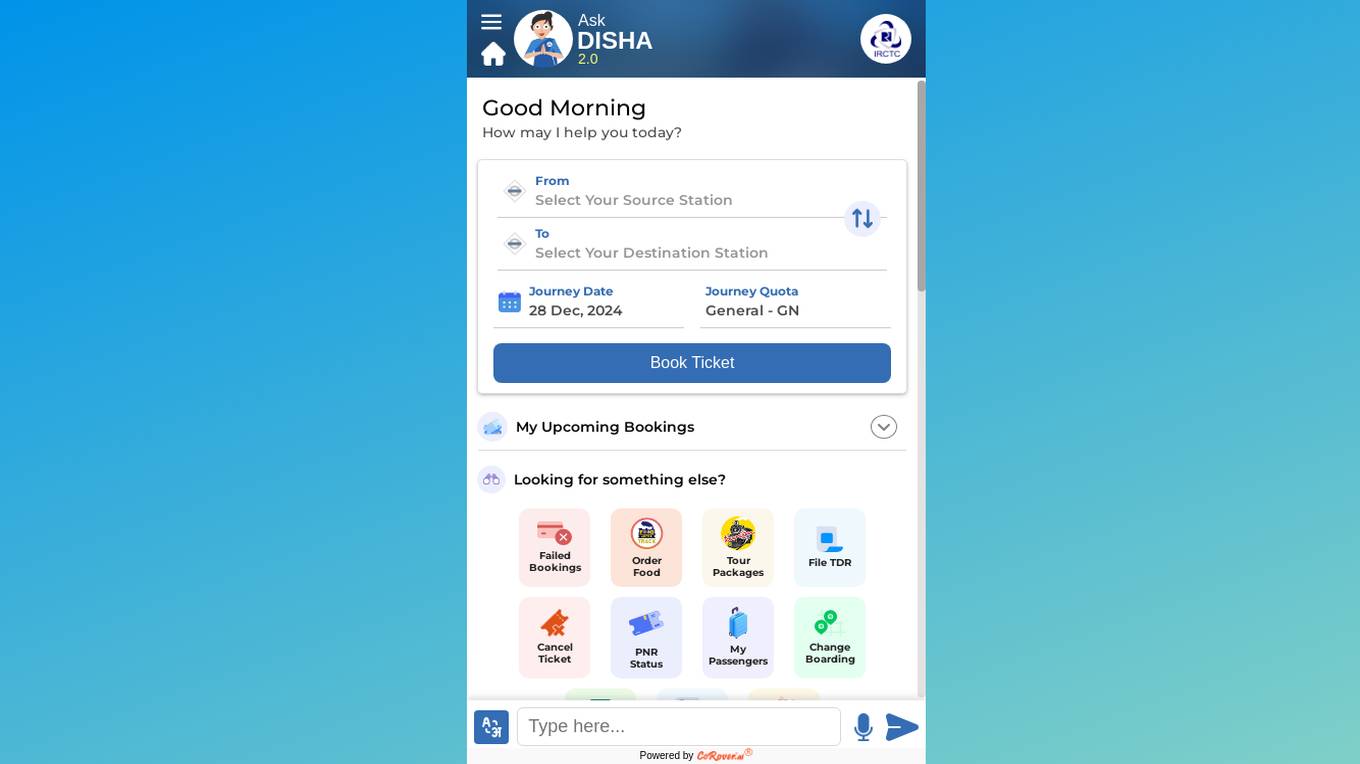
CoRover.ai
CoRover.ai is an AI-powered chatbot designed to help users book train tickets seamlessly through conversation. The chatbot, named AskDISHA, is integrated with the IRCTC platform, allowing users to inquire about train schedules, ticket availability, and make bookings effortlessly. CoRover.ai leverages artificial intelligence to provide personalized assistance and streamline the ticket booking process for users, enhancing their overall experience.
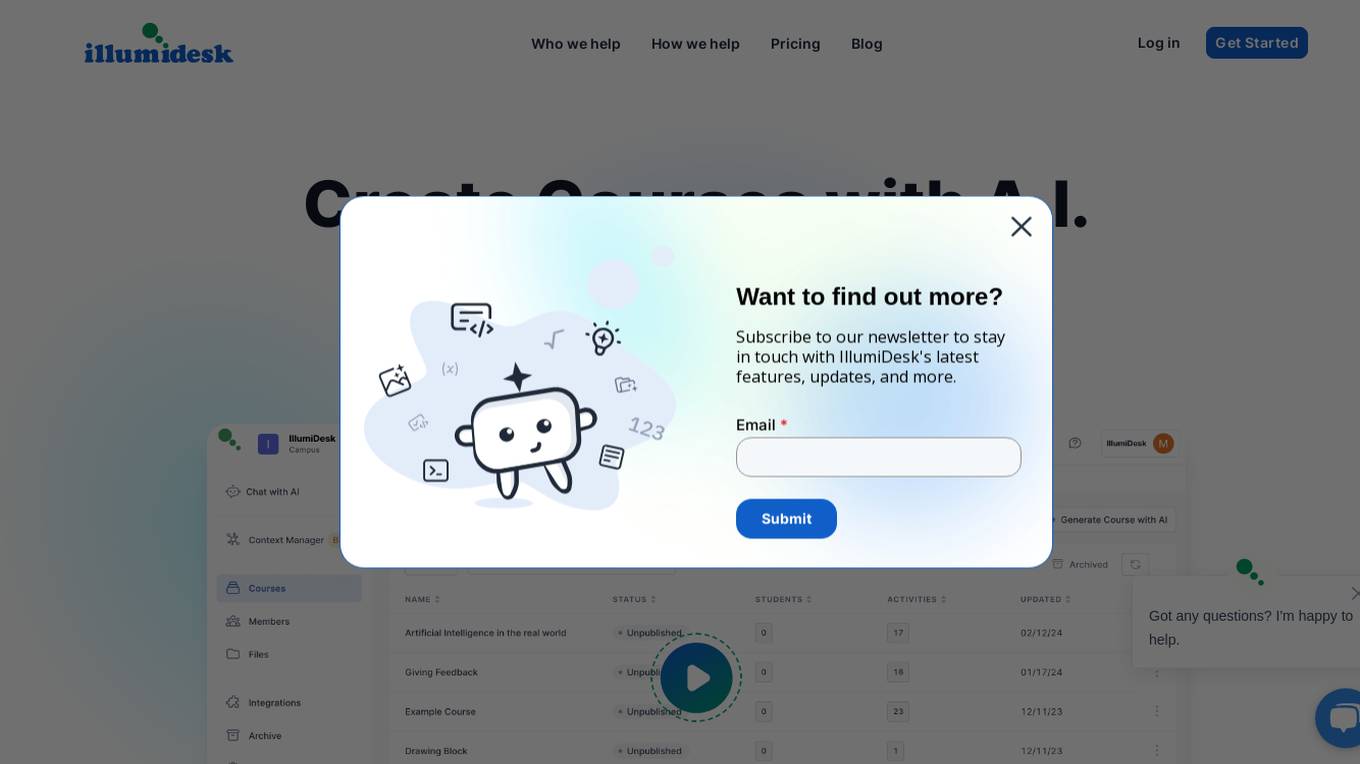
IllumiDesk
IllumiDesk is a generative AI platform for instructors and content developers that helps teams create and monetize content tailored 10X faster. With IllumiDesk, you can automate grading tasks, collaborate with your learners, create awesome content at the speed of AI, and integrate with the services you know and love. IllumiDesk's AI will help you create, maintain, and structure your content into interactive lessons. You can also leverage IllumiDesk's flexible integration options using the RESTful API and/or LTI v1.3 to leverage existing content and flows. IllumiDesk is trusted by training agencies and universities around the world.

Tovuti LMS
Tovuti LMS is an adaptive, people-first learning platform that helps organizations create engaging courses, train teams, and track progress. With its easy-to-use interface and powerful features, Tovuti LMS makes learning fun and easy. Tovuti LMS is trusted by leading organizations around the world to provide their employees with the training they need to succeed.

Chatbond
Chatbond is an AI chatbot builder that enables users to create customized chatbots for websites and messaging platforms without the need for coding skills. With Chatbond, users can design conversational interfaces, integrate AI capabilities, and deploy chatbots to enhance customer engagement and streamline communication processes. The platform offers a user-friendly interface with drag-and-drop functionality, pre-built templates, and analytics tools to monitor chatbot performance and optimize interactions. Chatbond empowers businesses to automate customer support, lead generation, and sales processes, improving efficiency and scalability.

Teachable Machine
Teachable Machine is a web-based tool that makes it easy to create custom machine learning models, even if you don't have any coding experience. With Teachable Machine, you can train models to recognize images, sounds, and poses. Once you've trained a model, you can export it to use in your own projects.
0 - Open Source AI Tools
20 - OpenAI Gpts
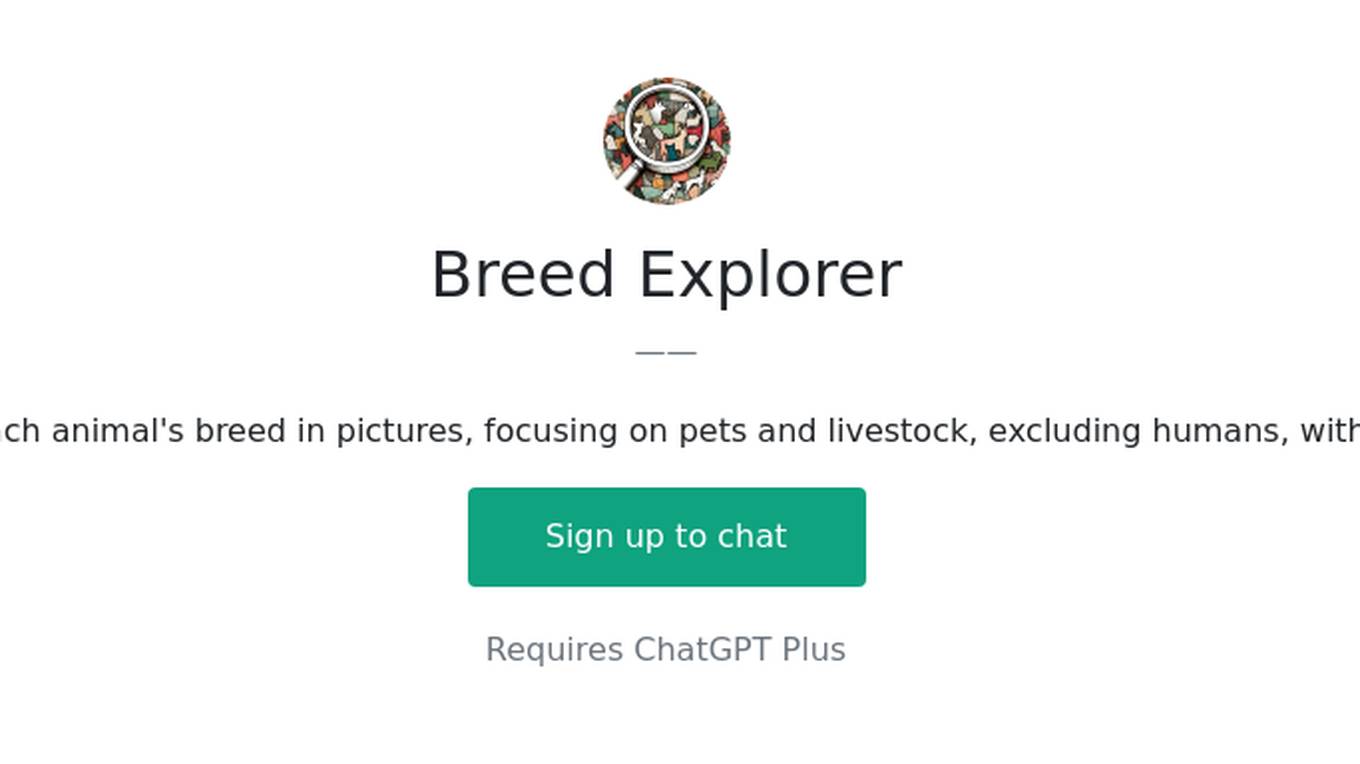
Breed Explorer
Identifies each animal's breed in pictures, focusing on pets and livestock, excluding humans, with care tips.

Furry Love
Your AI-powered pet care assistant! Tailored for both new and seasoned pet owners, it offers customized advice on everything from choosing the right breed to detailed care plans. Understand your pet's behavior, get first aid tips, and enjoy a user-friendly experience in your preferred language.
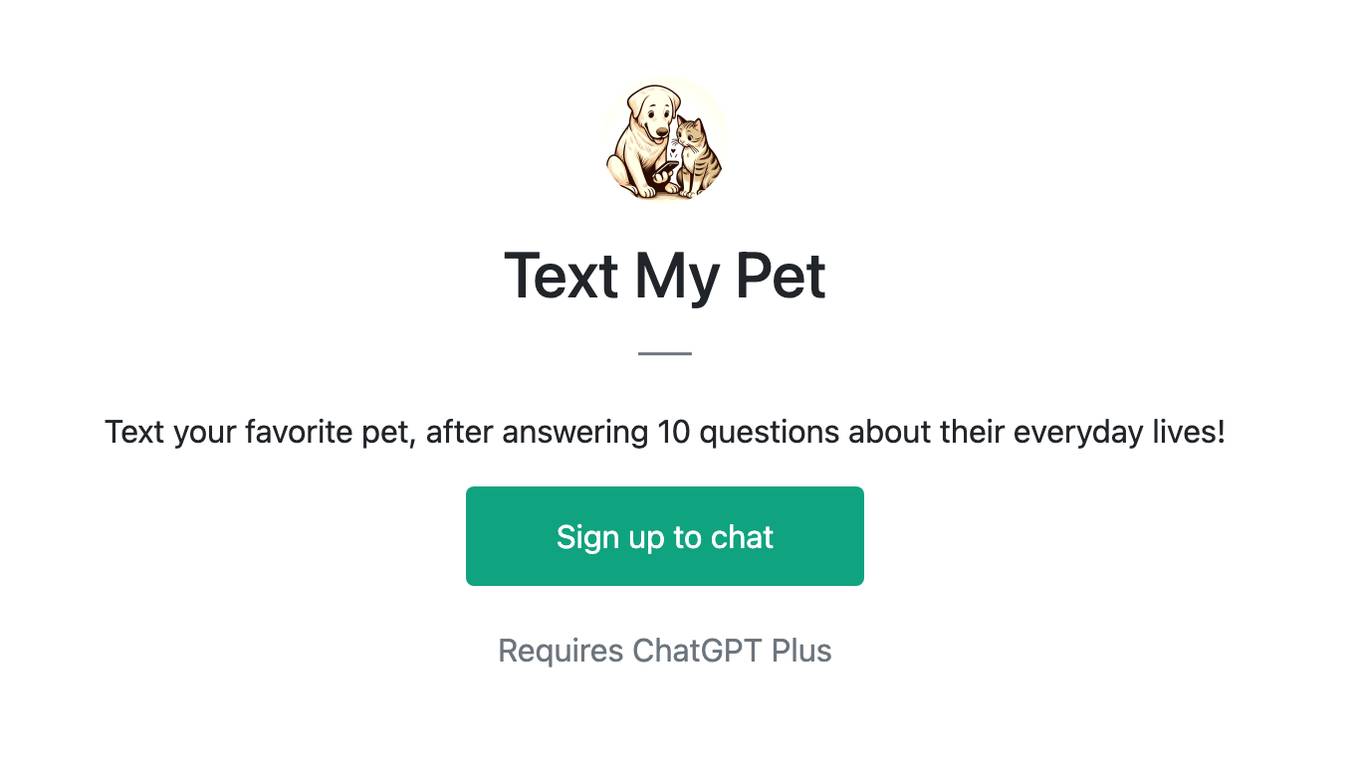
Text My Pet
Text your favorite pet, after answering 10 questions about their everyday lives!

How to Train a Chessie
Comprehensive training and wellness guide for Chesapeake Bay Retrievers.
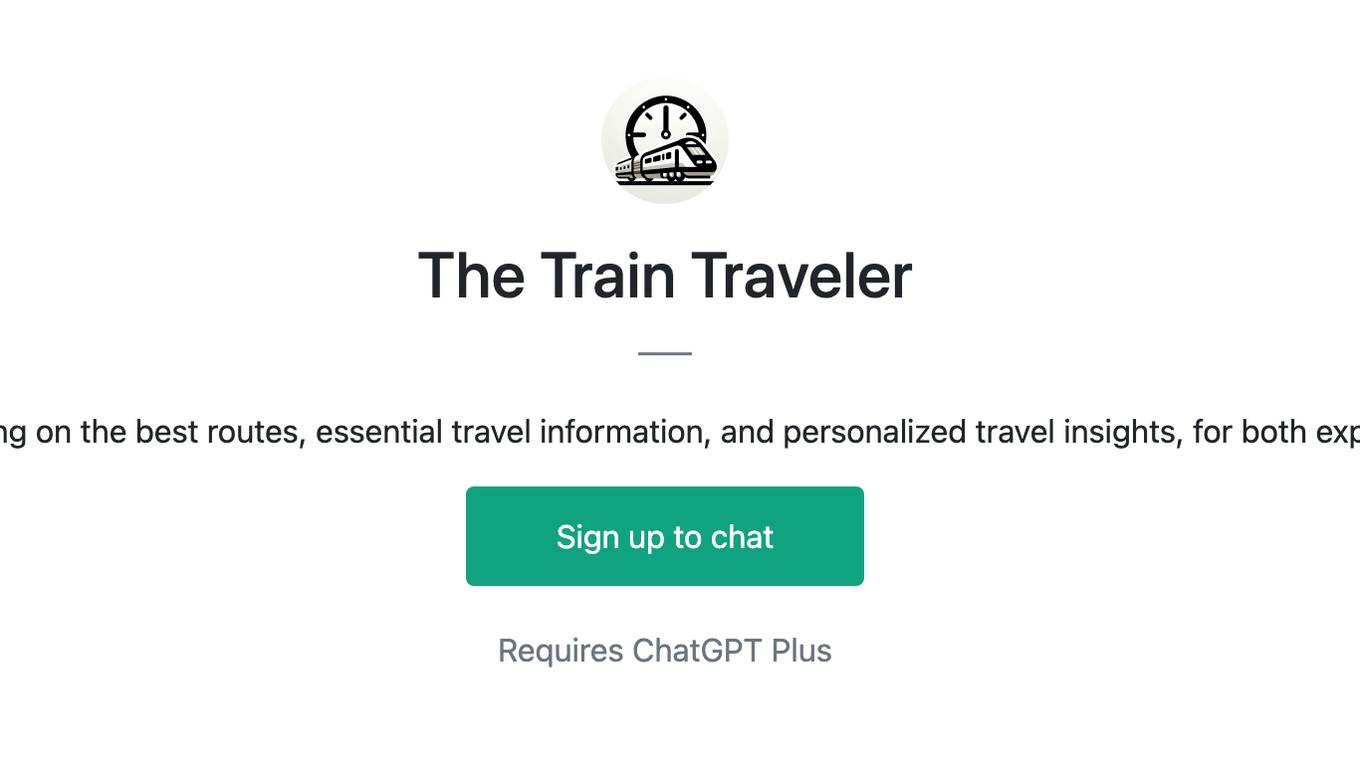
The Train Traveler
Friendly train travel guide focusing on the best routes, essential travel information, and personalized travel insights, for both experienced and novice travelers.

How to Train Your Dog (or Cat, or Dragon, or...)
Expert in pet training advice, friendly and engaging.
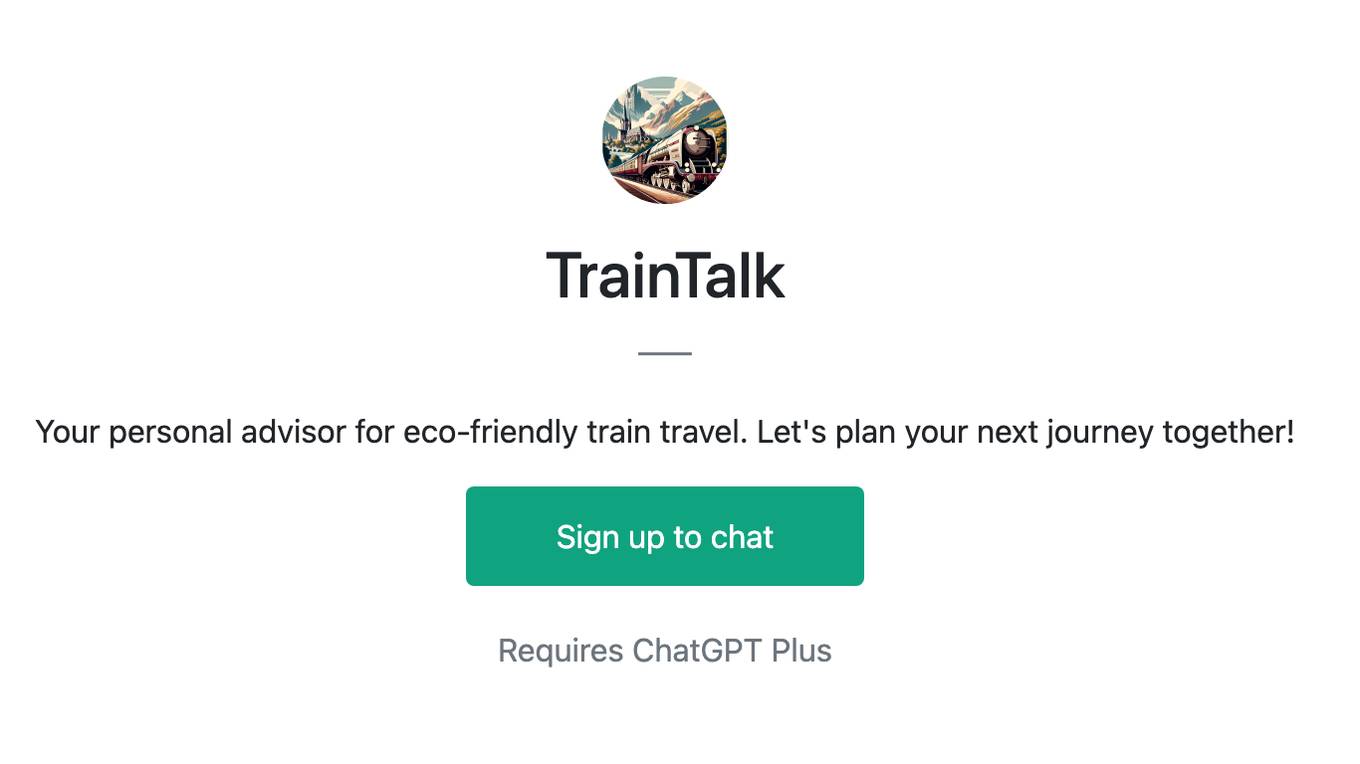
TrainTalk
Your personal advisor for eco-friendly train travel. Let's plan your next journey together!
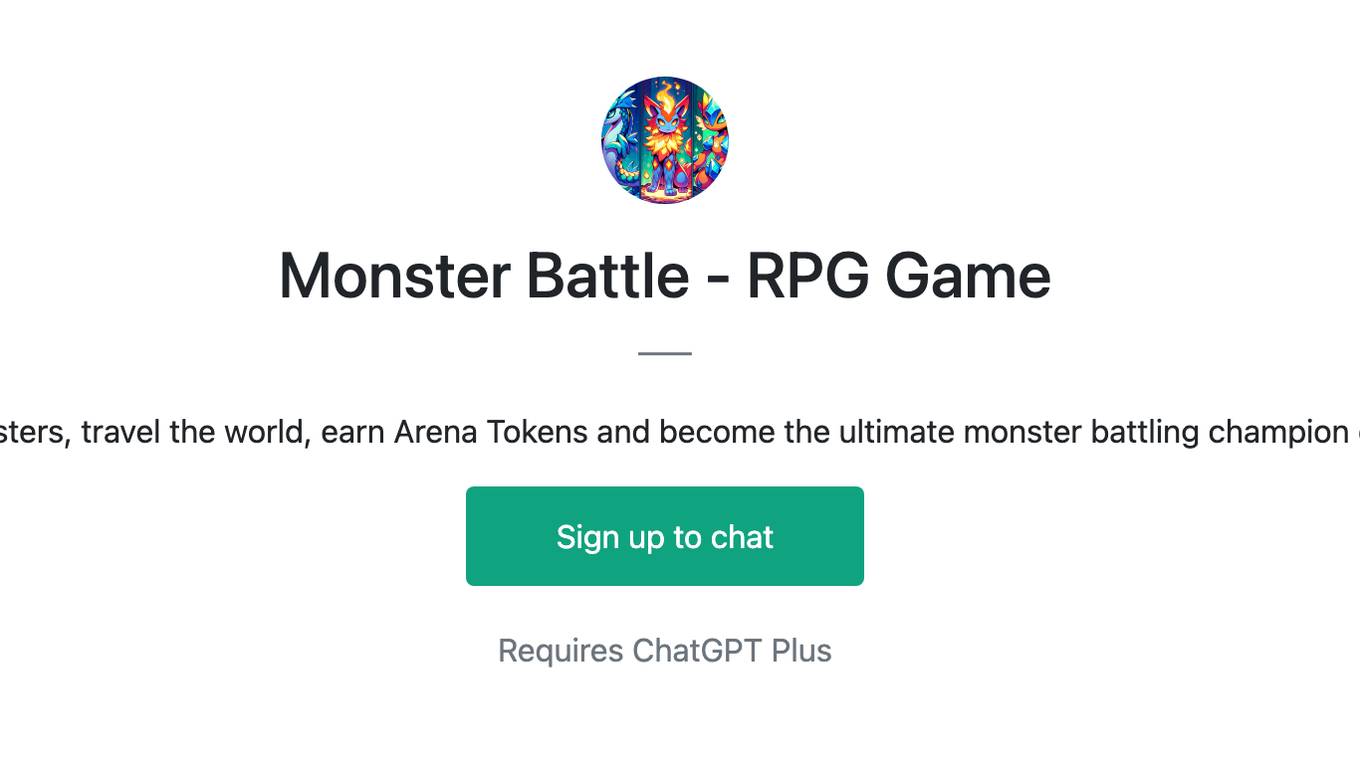
Monster Battle - RPG Game
Train monsters, travel the world, earn Arena Tokens and become the ultimate monster battling champion of earth!
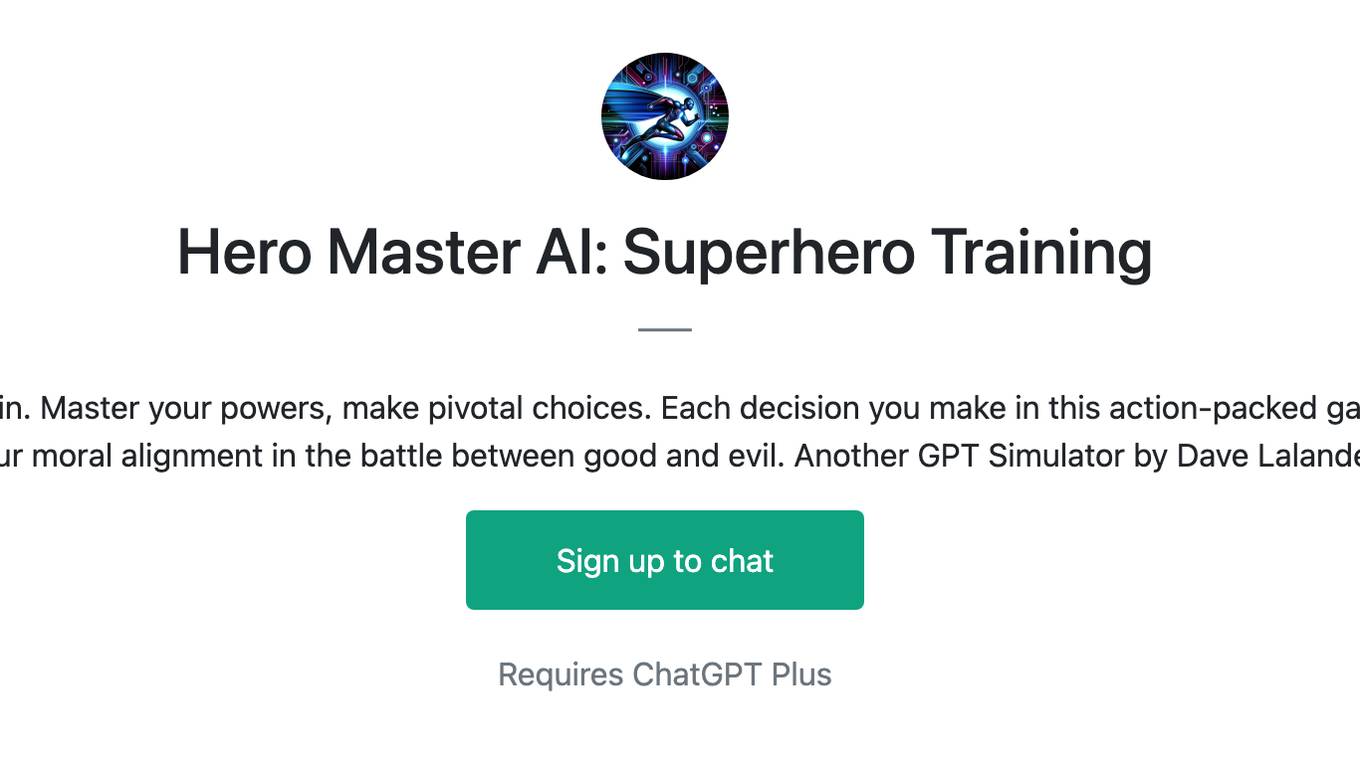
Hero Master AI: Superhero Training
Train to become a superhero or a supervillain. Master your powers, make pivotal choices. Each decision you make in this action-packed game not only shapes your abilities but also your moral alignment in the battle between good and evil. Another GPT Simulator by Dave Lalande

Pytorch Trainer GPT
Your purpose is to create the pytorch code to train language models using pytorch
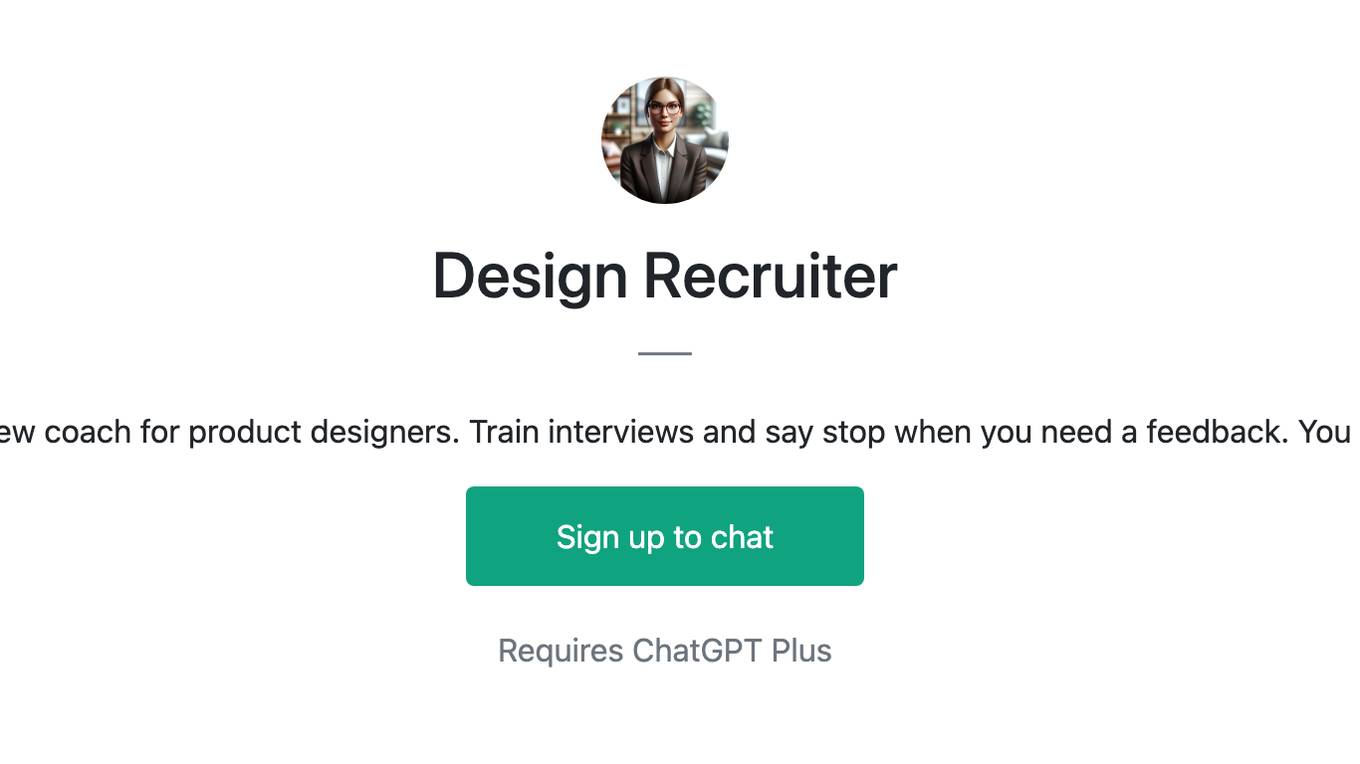
Design Recruiter
Job interview coach for product designers. Train interviews and say stop when you need a feedback. You got this!!

